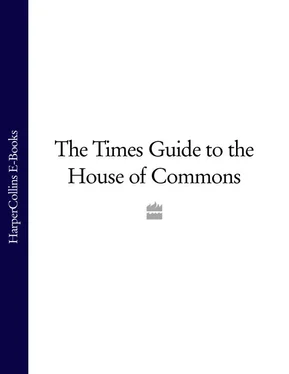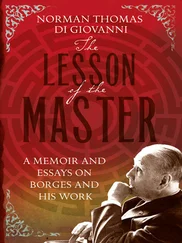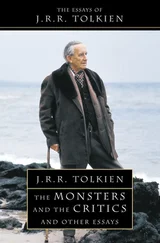Then came Cleggmania, a slightly too clever Conservative manifesto ( Invitation to Join the Government of Britain ), the Big Society that none of them understood, and then days of uncertainty followed by a coalition, the kind of shabby deal that, a few days before, their leader had been writing off as disastrous.
Now they want to believe, they really do. They want to see the roses in the garden and the coalition and smile on it. They want to discover that they have two for the price of one, but they are nervous. Could they be the losers? The coalition manifesto drops many of their cherished plans and policies.
They worry that they have already had to give so much to the sandal-wearing yellows. It could all come at too high a price.
But they are emotionally shattered. They have given their all to this man in the past five years. They are staunch, they are loyal, they are tribal. And they are, after 13 long and lonely years, back in power where they believe that they belong. They will give him a chance.
Path to power: how the Lib Dems made history
Greg Hurst
Editor of the Guide
The Liberal Democrats scarcely looked like a party on the brink of power for much of the 2005-10 Parliament. Two leaders resigned after losing support and authority, twice pitching members into leadership elections that were bitterly fought and bruising, rather than cathartic, and left some participants damaged. Yet despite periods of intense turbulence, the party underwent a profound transition as the leadership passed to a new generation with a different outlook from the social liberalism that had been its dominant philosophy for decades. An influx of 20 new MPs, a third of the parliamentary party, many of whom were able, experienced and, above all, ambitious, was another important dynamic.
The general election of 2005 was a double-edged sword for the Lib Dems. A net gain of 11 seats took them to 62 MPs, the highest for a third party since 1922, with some huge swings from Labour. The Conservatives, who gained five seats but lost three to the Lib Dems, unnerved those MPs who survived with precarious majorities with a ferocious new style of locally targeted campaigning. Such were the expectations that many Lib Dems hoped for a bigger breakthrough and saw the election as an opportunity missed.
Charles Kennedy, exhausted two days after the birth of his son, had torpedoed his own manifesto launch during the campaign by floundering over the details of a flagship policy for a local income tax. He found himself under pressure from the outset of the new term. Disappointment with the election result, compounded by tensions between social and economic liberals and frustration among new MPs with the party’s organisation in the Commons were compounded when Mr Kennedy drifted into one of his periodic bouts of introspection just as the party was crying out for leadership and strategic direction.
Although popular with many voters, Mr Kennedy was a source of increasing frustration with colleagues owing to an innate caution, chaotic organisation and reliance on a tight-knit inner circle of long-time friends. Although many suspected it, relatively few knew that he was an alcoholic who, when confronted by leading figures in the party in 2004, had agreed to undergo treatment but was subject to intermittent relapses. After months of tension, fresh drinking episodes in the autumn of 2005 proved to be the final straw for several of the younger generation of senior Lib Dem MPs, who began discussing plans for a multi-signature letter of no confidence in their leader.
A series of semi-public confrontations ensued during which Mr Kennedy, having previously appeared oddly detached, proved himself extraordinarily tenacious in seeking to cling on. Even when his alcoholism was disclosed, by a television journalist, he attempted a final throw of the dice by calling a leadership ballot of members in which he declared that he would be a candidate. His critics countered with a collective threat of resignation: 25 MPs declared that they would resign from their front-bench positions unless he fell on his sword. In a dignified statement the following day, Mr Kennedy duly stepped down.
The damage to the party did not stop there. Mark Oaten, a senior MP and, briefly, potential candidate for leader, was disgraced over liaisons with a male prostitute. Another candidate, Simon Hughes, Mr Kennedy’s chief rival for much of his leadership, was forced to admit to past sexual relationships with men, despite telling journalists that he was not gay.
It was the nadir: in January 2006, a YouGov poll put Lib Dem support as low as 13 per cent. The party looked at though it might tear itself apart. The unlikely and unexpected victory in the Dunfermline & West Fife by-election the following month, for which Mr Kennedy himself returned to the spotlight to campaign, helped to steady the ship.
The front-runner to replace him was Sir Menzies Campbell, the deputy leader, who made his name articulating the party’s opposition to the Iraq war. Any hopes of a coronation were dashed when Chris Huhne, a former MEP and one of the sharpest of the party’s new MPs, entered the race despite previously pledging to support Sir Menzies. Mr Huhne’s audacity enraged senior colleagues who had risked their reputations to topple Mr Kennedy but quickly won the admiration of many party activists, who mistrust anything that smacks of a stitch-up.
Sir Menzies won the election but Mr Huhne finished a strong second, after a vigorous campaign. Despite claims from supporters that Sir Menzies would bring a statesman’s authority to the role, his opening appearances in the Commons proved to be disastrous, as he struggled to be heard in the bear pit of Prime Minister’s Questions. In one early outing, as acting leader, he asked why one in five schools were without a permanent head. As his own party was itself without a leader, this provoked uproarious hilarity. Rapidly he was portrayed as too old, at 64, and out of touch. A determined man, he received coaching and his Commons performances improved but too late to rescue his reputation as an assured parliamentarian. Recriminations over his role in the traumatic resignation of Mr Kennedy also poisoned the well of the party’s body politic.
This was the Lib Dems’ awkward predicament as David Cameron, in his first year as Conservative leader, set about a re-branding exercise seeking to bite chunks out of their support. In a speech in Hereford, a precarious Lib-Con marginal constituency, Mr Cameron declared himself a “liberal Conservative” and appealed to Liberal Democrats to back him. His skilful championing of green issues threatened to wrest the mantle of environmental campaigning from the Lib Dems’ complacent grasp: plans by Mr Cameron for a wind turbine on the roof of his house and travelling by husky sled to view melting glaciers in Norway were vivid pieces of political positioning, although his environmentalism proved short-lived.
Another Conservative overture, seeking to field the former BBC Director-General Greg Dyke as a joint Tory-Lib Dem candidate for London Mayor, was more deftly rejected by Sir Menzies. The Lib Dems’ eventual candidate, Brian Paddick, proved to have questionable judgment and trailed in third place.
The following year, when Gordon Brown succeeded Tony Blair at No 10, the Lib Dems’ defences were tested again. Mr Brown wanted to appoint two Lib Dems to his Cabinet: Lord Ashdown of Norton-sub-Hamdon and another peer who he hoped would defect to Labour, as he tried to construct a broad-based “government of all the talents”. His plan leaked and was scuppered; oddly, Mr Brown assumed that Lib Dems would serve in a Labour administration, not a coalition with agreed policy concessions. The new Prime Minister settled on advisory posts for several Lib Dems: Lady Neu-berger (on volunteering), Lord Lester of Herne Hill (on constitutional reform) and Baroness Williams of Crosby (on nuclear proliferation). Matthew Taylor, a former front-bencher, conducted an inquiry on rural housing.
Читать дальше












